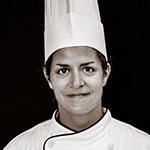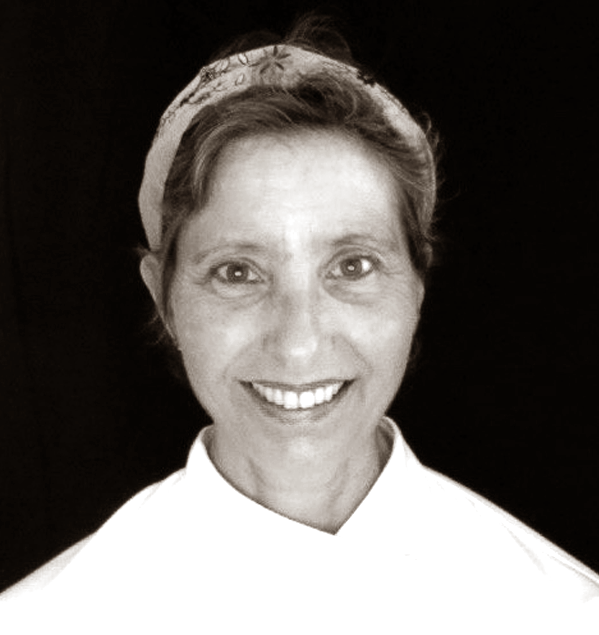Perhaps you’d like to show up to your next family gathering with an exquisite lattice-topped apple pie. Or maybe you want to learn what makes your favorite bakery’s sourdough more complex and airy than the loaf you pick up at the grocery store.
No matter what type of baking skills you’re hoping to learn, baking classes can be a good place to start. However, as is the case for many types of education, baking classes aren’t free!
Stick with us to learn about baking class options and how much each of these classes can cost.**
Where Can I Take Baking Classes?
Once you’ve decided what skills you want to explore and which baked goods you’d like to practice making, you can begin to explore where you can enroll in baking classes. Some options include private cooking schools, community colleges, home kitchens, and accredited culinary schools.
So, how do you choose? By considering a few different factors. One is location. What options are available near your home? How far are you willing to travel to attend classes? Are you willing to relocate in order to receive an education that may help you hone your at-home baking skills or further your career as a baker?
Another consideration is the type of tools and equipment that are available in these locations. If you’re interested in learning how to bake bread in a wood-fired oven, you’ll want to learn in a location where you have access to one!
Along with considering where you’ll be taking your classes, you can also think about whether or not your classes will come with advanced learning opportunities, like externships.
And don’t forget to research who is teaching the classes! Not only can it be helpful to learn about the instructor’s experience and certifications, but it’s also a good idea to ask about their teaching style and learning philosophy.
“With regard to my teaching style, I’m interested in students making mistakes. Making mistakes is how you learn. I tell students that it’s important that once you make the mistake, you learn from that and you never make it again—so you can continue growing and have more tools for success.”*
Emily Maddy, Escoffier Austin Campus Culinary Arts Chef Instructor
How Much Can Baking Classes Cost?
If you decide to enroll in baking classes at Escoffier, you’ll be able to decide between associate degree and diploma programs in baking and pastry. The programs are offered online as well as in-person at the Austin and Boulder campuses, and costs can vary depending on both the program and location.
Online Classes
If you’re interested in online baking classes, here’s what you can expect to pay for tuition and fees:
- Diploma in Professional Pastry Arts program: $18,094-$21,878 at the time of publish
- Associate of Occupational Studies Degree in Baking and Pastry: $20,099-$30,515 at the time of publish
It’s important to keep in mind that financial aid may be available for those who apply and qualify—we’ll cover more on that below.
So, what can you expect your tuition to cover? At Escoffier, our online programs are much more than in-person classes that have been filmed and placed online. These courses have been specifically designed for online format instruction, and include discussions, video demonstrations, and customized feedback from instructors.
Students in Escoffier’s online pastry school may spend time completing weekly readings about topics like how to fold a laminated dough and mix together a French buttercream, sharing insight about assignments with their peers via online discussion boards, attending live video sessions with their Chef Instructors, baking for assignments, and receiving detailed feedback.

By documenting their work, Escoffier online students are able to receive personalized feedback.
By working remotely, students may find they can learn how to better use all of their senses to describe their food and improve their techniques. For example, by knowing how to describe a dough as tacky, gluey, or slimy, students may be better able to understand the nuanced differences between a mediocre and an excellent loaf of bread.
Ground Campuses
If you prefer attending classes in person, you can choose from classes at Escoffier’s Boulder, CO and Austin, TX campuses. Here’s what you can expect to pay in tuition, fees, and supplies:
- Pastry Arts Diploma program: $21,878 in Austin, $18,094 in Boulder at time of publish
- Associate of Applied Science Degree in Pastry Arts (Austin): $37,370 at time of publish
- Associate of Occupational Studies Degree in Baking and Pastry (Boulder): $36,740 at time of publish
What Are the Differences Between Associate Degree and Diploma Programs?
Diploma programs can typically be the shorter option—they consist of 760 to 910 clock hours of work, depending on the location of the program. During this time, students can explore how to bake with and without recipes, gain experience using multiple baking tools and pieces of equipment, and become familiar with plating. Escoffier graduates also complete hands-on industry externships as a requirement before graduating.
Associate programs dive deeper into the world of baking and pastry and therefore consist of 1340 clock hours. Along with exploring the fundamentals of French pastry and baking, students also dive into topics such as food entrepreneurship, technical writing, and foodservice management. They can then wrap up their associate degree program by completing two externships.
Associate programs are more expensive than diploma programs, but both programs can ensure student tuition is put to good use. Students can complete courses that were developed by professionals, receive expert advice from Chef Instructors, have access to an extensive alumni network, and can reach out to career services, tutors, and student support.
“It’s all about learning the technique, the ingredient function. The science, the math, the percentages. Then nailing that, and then the knowledge sets you free. You don’t learn to become a good musician without learning the scales and learning how to read music and going through that very boring theory and all that stuff. It’s the same with baking.”*
Colette Christian, Escoffier Pastry Chef Instructor and Certified Master Baker
How Does Financial Aid Factor In?
If you’d like to lower the cost of baking classes, financial aid may be an option. However, it’s important to note that you can only receive federal financial aid if you attend an accredited culinary school, like Escoffier. Additionally, only students who are both eligible for and apply for financial aid may receive funds to put towards their baking education.
Potential students can explore both need-based and merit-based scholarships that may lower the overall cost of attending baking school. You can also investigate federal student loans.
No matter what you end up paying for baking and pastry school, remember that your education is an investment rather than a purchase. By taking the time to advance your knowledge and skills now, you may set yourself up for a more financially stable future.
Choose the Best Baking Classes for You
When it comes to choosing baking classes, the options seem as endless as the grains in a bag of sugar! That said, thinking about factors like cost, covered material, and length can help you narrow down your options.
If you’re interested in receiving a well-rounded education in pastry and baking, investing in Escoffier’s programs may help set you up to start the career you’ve dreamed of.
To learn more about Escoffier’s programs and their associated costs, contact us today.
To learn more about baking and pastry, check these articles out next:
- What Can You Learn in a Bread Baking Class?
- Is Pastry School Worth It?
- What Can You Learn in Baking School?
*Information may not reflect every student’s experience. Results and outcomes may be based on several factors, such as geographical region or previous experience.
**Consider your situation and resources to determine what is affordable and on budget, for you.

 “With regard to my teaching style, I’m interested in students making mistakes. Making mistakes is how you learn. I tell students that it’s important that once you make the mistake, you learn from that and you never make it again—so you can continue growing and have more tools for success.”*
“With regard to my teaching style, I’m interested in students making mistakes. Making mistakes is how you learn. I tell students that it’s important that once you make the mistake, you learn from that and you never make it again—so you can continue growing and have more tools for success.”* “It’s all about learning the technique, the ingredient function. The science, the math, the percentages. Then nailing that, and then the knowledge sets you free. You don’t learn to become a good musician without learning the scales and learning how to read music and going through that very boring theory and all that stuff. It’s the same with baking.”*
“It’s all about learning the technique, the ingredient function. The science, the math, the percentages. Then nailing that, and then the knowledge sets you free. You don’t learn to become a good musician without learning the scales and learning how to read music and going through that very boring theory and all that stuff. It’s the same with baking.”*

